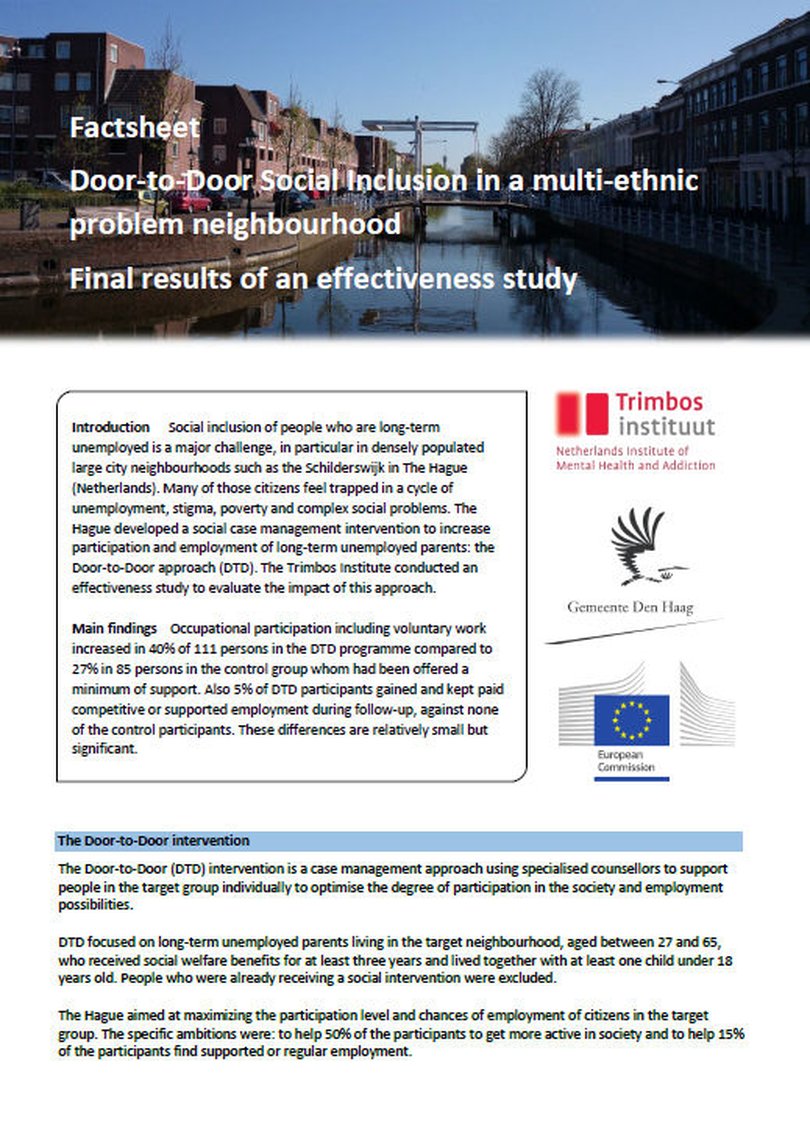Final results of an effectiveness study
Social inclusion of people who are long-term unemployed is a major challenge, in particular in densely populated large city neighbourhoods such as the Schilderswijk in The Hague (Netherlands). Many of those citizens feel trapped in a cycle of unemployment, stigma, poverty and complex social problems. The Hague developed a social case management intervention to increase participation and employment of long-term unemployed parents: the Door-to-Door approach (DTD). The Trimbos Institute conducted an effectiveness study to evaluate the impact of this approach.
Occupational participation including voluntary work increased in 40% of 111 persons in the DTD programme compared to 27% in 85 persons in the control group whom had been offered a minimum of support. Also 5% of DTD participants gained and kept paid competitive or supported employment during follow-up, against none of the control participants. These differences are relatively small but significant.





